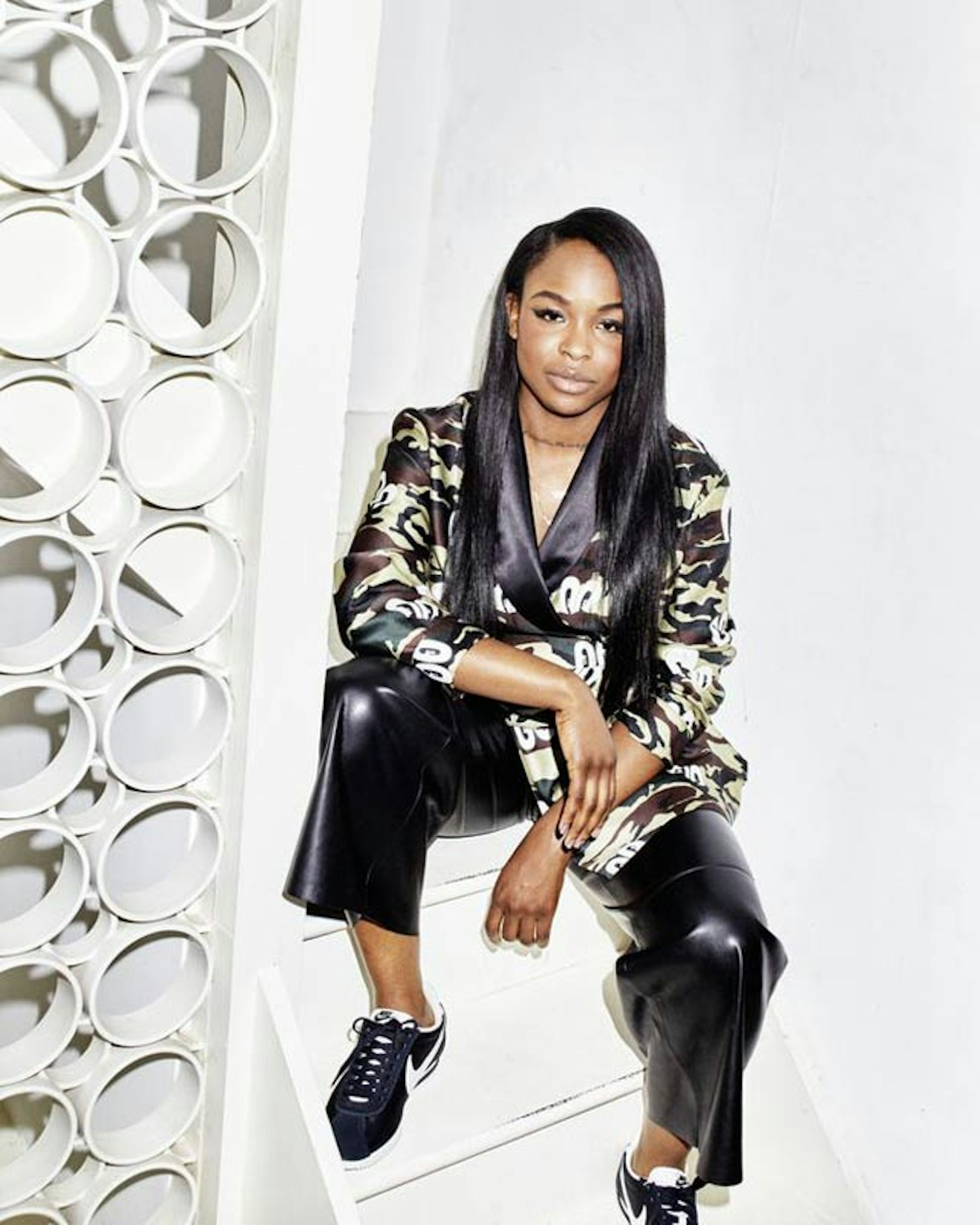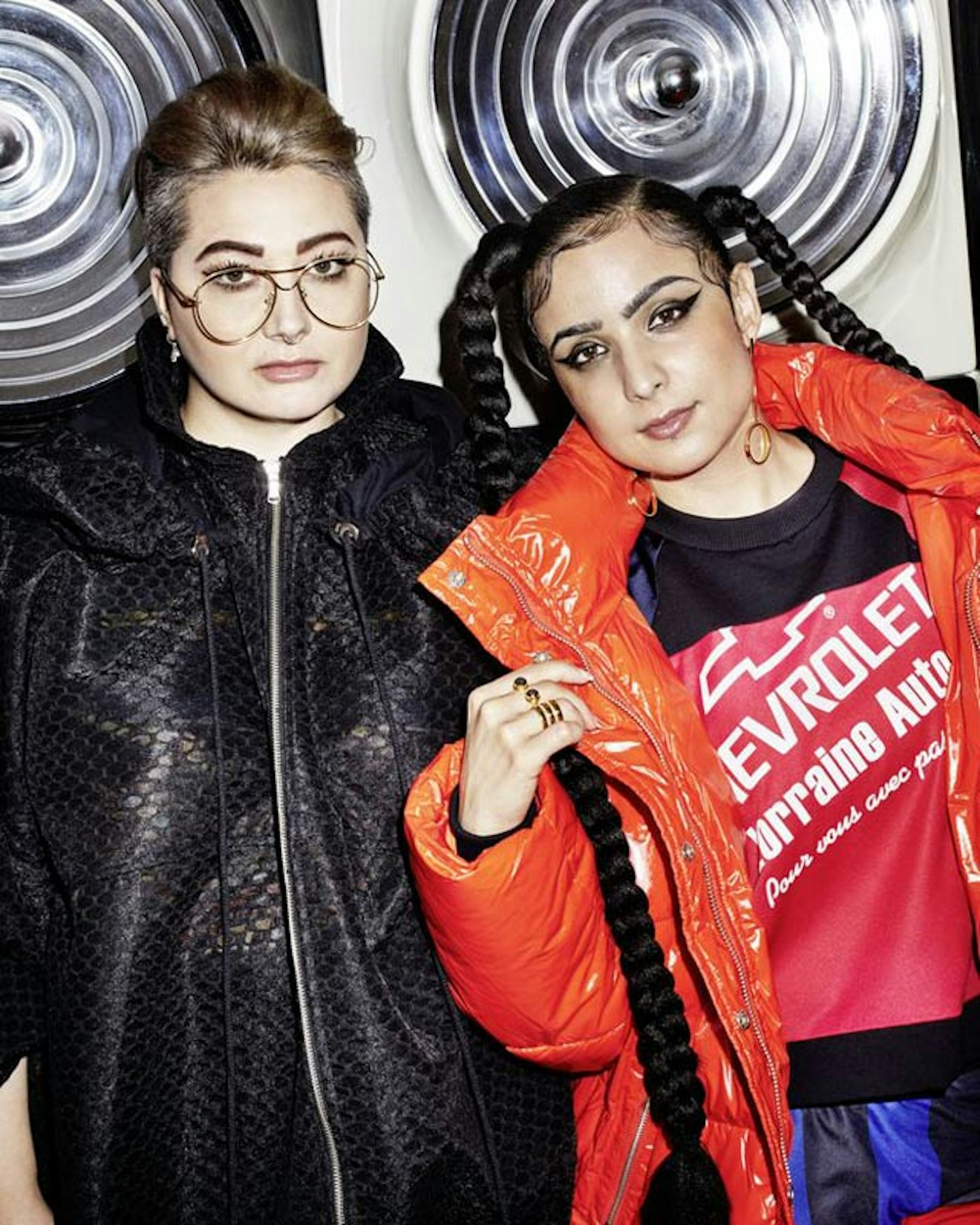You can name a couple of Stormzy tracks, know that Skepta cleaned up at every awards ceremony, but what you may not know about grime is that, behind the scenes, the UK’s hottest genre is powered by women.
Unlike American rap and hip-hop, which has been dogged by accusations of misogyny, grime, the rap sub-genre characterised by frenetic beats and rapid-fire vocals, has a much more socially conscious reputation and readily celebrates the women who play a role in its creation.
Last year, for example, Skepta invited his mum on stage when he collected his Mercury Prize (she danced around joyously and went viral). During his speech, he thanked his female managers, Grace Ladoja and Radha Medar, and it was a pertinent reminder that it is actually women who are guiding this stereotypically male genre to its current wave of popularity.
Because a surprisingly large number of women are managing successful male acts, from Lethal Bizzle (he of the hilarious online video in which he taught Dame Judi Dench how to rap) to Chip, who won Best Grime Act at the MOBO Awards in November last year. As grime increases its share hold over mainstream popular culture, Grazia met the women bossing the scene.
Ebi Sampson, 28

Act: 67
One year ago, Ebi co-founded management consultancy Leo Sounds a er a career in fashion saw her work with music acts. She manages PR for 67 (pronounced six seven), explaining that most of the group, from Brixton, ‘came from single parent homes. eir mum was the strongest gure in their lives, they have the utmost respect for women’.
67’s videos feature lots of macho posturing, yet Ebi bosses them around, telling them where to sit, admonishing them if they go off-script. During a recent interview, she cut in to correct Dimzy for going off on a tangent. He apologised meekly before refocusing his chat. She says that, in her experience, ‘The guys find it easier to work with females, to be honest and open with us. We’re friends and managers. It’s a motherly relationship.’
UK rap has become more socially conscious as grime has reached a wider audience, she says. ‘[Artists] are so aware that people listen to what they say. You’ve got so many young kids that look up to these massive UK artists now. It’s a worldwide platform, so they wanna share and be so much more conscious about what they say. People look up to them; you feel it more now than ever.’
Nadia Khan, 33, and her signing, Laughta, 28

Nadia has been Lethal Bizzle’s manager for 14 years, when grime was just starting out.
‘I was the only female manager I knew of. It’s changed a lot over the last few years.’ She attributes this to the mainstream popularity grime has gained. As the scene has expanded, so too have the opportunities, so women like her can usher in other female talent.
‘It’s still very male-dominated, but more women are realising they can go for those roles,’ she says. ‘Any young female managers I come across, I always speak to and mentor.’
Nadia manages female rapper Laughta, 28, whose recent single Pree My Ting was produced by Jammer, a member of Skepta’s group BBK. Laughta con rms it’s much harder for women to succeed as rappers.
‘I can’t say that women don’t face more barriers,’ she says. ‘We have to prove ourselves 10 times harder. We have to be better than the guys.’ Yet Laughta has taken action.
In 2015 she hosted Female Hype, a series
of shows held at London club Queen of Hoxton, which championed female rap talent. ‘I did it for the cause,’ she says, ‘I had to throw myself on the stage.’
Damaris Rex-Taylor

Label: Disturbing London
Damaris, general manager at Disturbing London, Tinie Tempah’s record and clothes label, says, ‘Grime has always fought its way through. Acts don’t go by the old-boy system – they kind of can’t, because they didn’t go to the right school or have the right industry connections – so grime is a good example of music that’s ripping up the rule book.’ This self-starting spirit, she says, has created more diversity behind the scenes. ‘The whole industry has always been very male-dominated, but management is an area that has increased its female power. Still, there should be more of us.’
Damaris worked at record labels EMI and Parlophone before she took charge of Disturbing London. ‘Naturally I’ve been around a lot more men – very supportive men; I definitely want to get that across,’ she says. Disturbing was founded by Tempah and his business partner Dumi Oburota, so, ultimately, it is a company run by men. But, Damaris says, ‘There are a lot of women coming up in music. Women have got into groups and realised we have to support each other. It’s up to women and men to support female talent from boardroom to stage.’
Caroline Simionescu-Marin, 22

Project: New Gen
A former editor of grime website GRM Daily, Caroline is a talent scout at the label XL Recordings. She compiled last year’s New Gen album featuring new urban music talent – including Ray BLK, who went on to win the BBC’s Sound Of 2017, previously awarded to Adele and Sam Smith.
Caroline claims grime is inherently progressive and has opened up more opportunities for women. ‘It has an independent spirit, helping the underdog win,’ she says. ‘It’s so rebellious and punk in essence. Everybody wants to tap into it now.’ She was inspired to create New Gen after seeing grime go from niche to mainstream. ‘I remember going to see Stormzy in a venue with 50 people,’ she says. ‘Then I saw him at Brixton Academy with 5,000.’ For all this positivity, she ‘wasn’t totally happy’ to have just two women on the album. ‘At that point there weren’t as many women coming through.’ She’s confident that the sequel will work towards gender equality. ‘I’ve already found some amazingly talented female artists,’ she says.
READ MORE: Robert Pattinson Splits With Fiancé FKA Twigs After Three Years Together
READ MORE: Kim Cattrall Is Right Not Do To Sex And The City 3 And Here's Why
